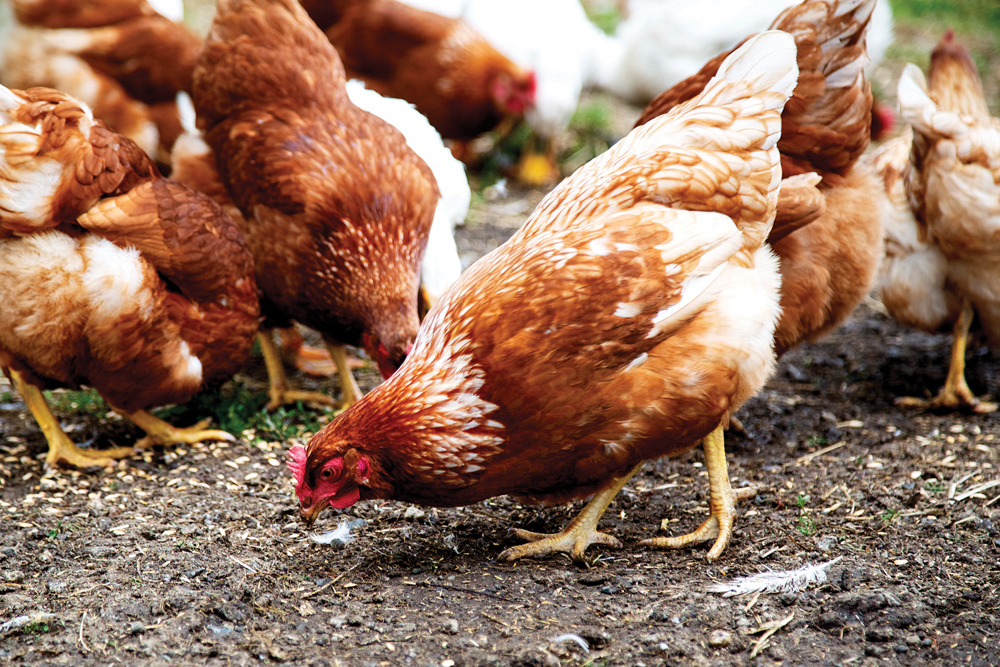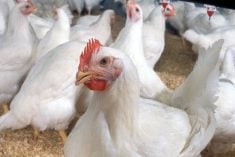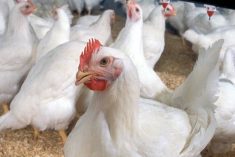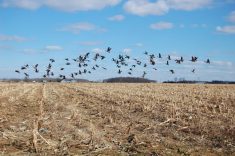Small flock owners around Portage la Prairie are being asked to ramp up biosecurity.
The province has warned producers about a rash of wild birds in the area that have died due to highly pathogenic avian influenza (HPAI).
Why it matters: As of Dec. 12, HPAI had claimed over 10.9 million domestic birds in Canada since late 2021.
Read Also

Tie vote derails canola tariff compensation resolution at MCGA
Manitoba Canola Growers Association members were split on whether to push Ottawa for compensation for losses due to Chinese tariffs.
In a Dec. 4 Growing Manitoba Ag newsletter, the province said that a “large number of mortalities” from HPAI had been reported in late November within Portage la Prairie’s Canada goose population.
Not every mortality was tested, the province later said via email. Of the 30 noted dead birds, eight were sampled. All came back positive for HPAI.
The Dec. 4 notice was targeted to small flock producers, since they are not registered under the same traceability programs as commercial operations, the province said. Commercial producers in the area were identified through Manitoba’s traceability program and warned through their individual producer groups.
Biosecurity
Producers should take measures such as moving their birds indoors, the Dec. 4 notice urged. Other promoted biosecurity measures include separate footwear and clothes for anyone entering poultry housing. Feed should be protected from contact with wild birds and traffic between poultry barns and onto yards should be limited where possible.
Producers have further been discouraged from getting new birds from other farms, shows, auctions or online sales. The province is recommending that new birds come only from commercial hatcheries.
Another suggestion urges producers to keep any geese or ducks (even domestic geese or ducks) away from chickens and turkeys.
The same notice pushed producers toward the province’s small flock screening program, which provides free diagnostic testing or post-mortem examinations for operations with fewer than 1,000 birds. The program is administered through local veterinarians.
“Any high mortality or large egg production drop in flocks over two weeks of age is a good reason to send in birds,” the program’s website states.
For younger birds, producers should consider a sample if five or more birds out of 100 have been lost.
The province has not received any samples through the program from the Portage la Prairie region, a spokesperson said. Nor has the Canadian Food Inspection Agency received any calls about sick domestic birds from the area.
AI count
Outside the Portage la Prairie cluster, the province has found eight wild HPAI cases in southern Manitoba this fall. None of those showed an obvious geographic trend, although an emailed response to the Co-operator noted that most samples come from Winnipeg or other heavily populated areas.
As of Dec. 13, Manitoba had seen only two domestic HPAI cases in 2023. A commercial farm in the RM of Rhineland broke on Nov. 8. Another, non-commercial poultry site was also confirmed positive for HPAI on Nov. 24 in the RM of West St. Paul.
















